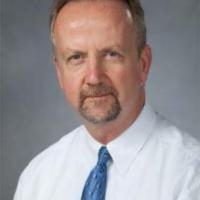Teaching and Academic Burnout Save

RheumNow recently highlighted a publication that reported about a third of physicians in academia intend to leave.
To our colleagues in non-academic situations, this may seem incredibly high. Certainly, each practice situation has its benefits and challenges. Academic physicians have been relatively shielded from some of the forces faced more directly by our private practice colleagues, such as billing/collecting etc.
I think an important contributor to the intention to leave academics is that something that used to be a benefit has now become a challenge: namely, teaching.
Academic physicians used to relish teaching medical students, residents, and fellows. Indeed, not only did we promise to teach the next generation of physicians when we took the Hippocratic Oath, and of course it is a requirement for academic advancement, but more importantly it was something that physicians used to take great pleasure in.
What happened?
To the old adage, “those who can – do; those who can’t – teach” I would add “those who are not really good at practicing medicine, and not great at teaching others medicine, become overlords in the academic medical education machine”. Lately, these detached bureaucrats have seemingly become obsessed with enforcing their own unproven largely ‘woke’ beliefs as to how medical education should be conducted.
Rather than putting a medical student on the spot with an affront such as “what are the potential causes of non-anion gap metabolic acidosis?”… we should rather say something like “..how do you feel about the anion gap.. and are there any ions that are not represented”. Trainees at all levels are also actively encouraged to report ‘bad behaviors’ by those teaching them (much like the Stasi did in the old East Germany). Make a grievous affront such as referring to someone as a “homeless person” (rather than “person experiencing homelessness”) and you should be written up for being unprofessional.
Over the course of the year, if you received 24 evaluations ranking you as a superlative teacher, with glowing remarks added…. But you also get 1 evaluation where it is implied you may be unprofessional… you can guarantee you will hear nothing about the former but be quickly reprimanded for the latter.
Ask any fellowship program director about the medical education apparatus. After looking over both shoulders, they will whisper agreement… teaching has become a contributor to burnout.
Join The Discussion
Isn't the "bottom line" for the academic rheumatology departments how much extramural funding a faculty member can bring in order to save them having to pay salaries from the internal funds? The ability to be a good teacher to students, residents and fellows is secondary. Clinical faculty members without outside funding are treated as second-class citizens.










If you are a health practitioner, you may Login/Register to comment.
Due to the nature of these comment forums, only health practitioners are allowed to comment at this time.